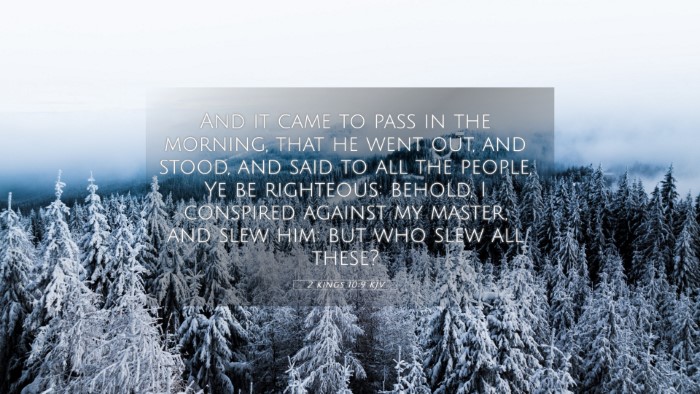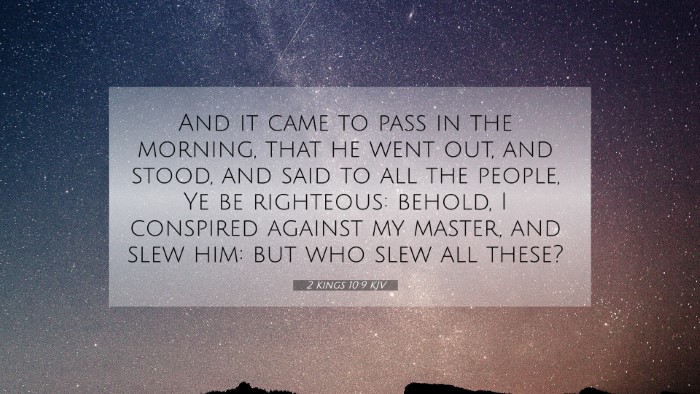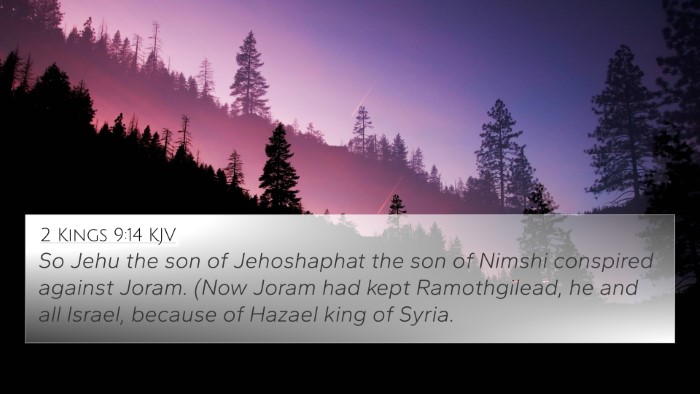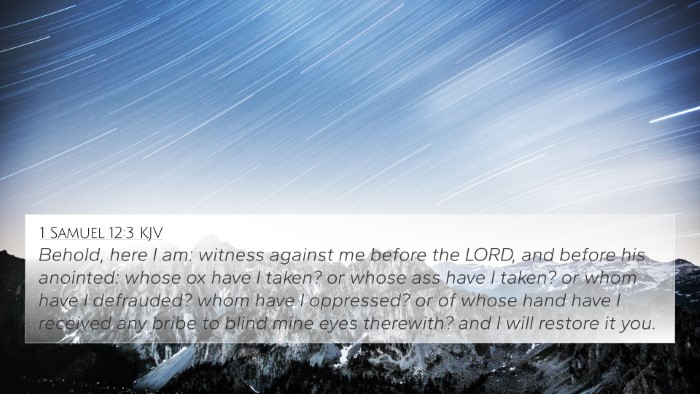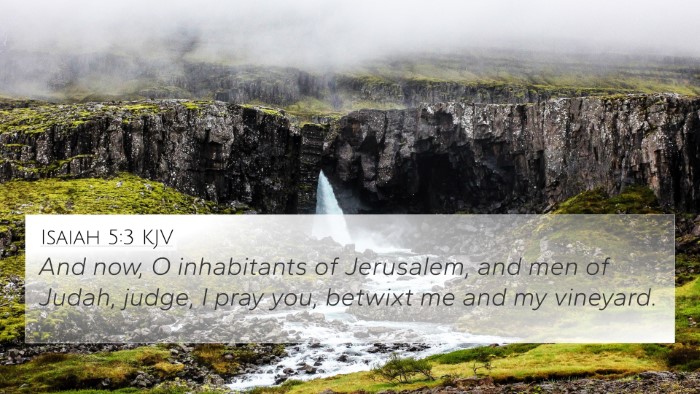2 Kings 10:9 - Understanding the Verse
Bible Verse: 2 Kings 10:9 - "And it came to pass in the morning, that he went out, and stood, and said to all the people, Ye be righteous: behold, I conspired against my master, and slew him: but who slew all these?"
Summary and Meaning
This verse occurs within the context of Jehu’s consolidation of power after the overthrow of King Joram and the royal house of Ahab. Jehu addresses the people, asserting his authority while subtly reminding them of the violence and bloodshed involved in his rise to power.
Insights from Commentaries
-
Matthew Henry:
Henry emphasizes Jehu's boldness in acknowledging the sin he committed while also underscoring the collective righteousness of the people, asking them to contemplate the implications of his actions. This dialogue reflects the complexity of leadership and moral responsibility.
-
Albert Barnes:
Barnes notes that Jehu’s declaration serves as both a confession and a challenge to the people. He implies that while he has taken drastic action against Ahab's house, he is aligning his motives with the views of the people, which hints at a necessity of communal accountability.
-
Adam Clarke:
Clarke reflects on the historical significance of this moment, where Jehu tries to establish legitimacy for his acts of violence by framing them as necessary for the greater good of Israel. This highlights the dangers inherent in revolution and the often blurred lines between justice and tyranny.
Cross-references and Related Verses
Understanding this verse involves looking at connections between other Biblical texts. Here are several cross-references that shed light on the themes of violence, leadership, and accountability:
- 2 Kings 9:7: Jehu is divinely appointed to destroy the house of Ahab.
- 1 Kings 21:19: God pronounces judgment on Ahab for Naboth’s murder, illustrating the consequences of wicked leadership.
- 2 Chronicles 22:8: The connection between God’s decree and the downfall of Ahab’s dynasty.
- Jeremiah 22:17: Speaks against those who use violence for personal gain, reinforcing accountability.
- Acts 5:29: The notion of obeying God rather than human authority, paralleling Jehu's actions.
- Matthew 5:21-22: Jesus reinterprets the implications of murderous intent, linking it back to the heart of the law.
- Romans 13:1-4: Paul discusses the role of authority, suggesting that while leaders wield power, they are ultimately accountable to God.
Thematic Connections
This verse encapsulates themes of leadership, justice, and divine judgment. By examining the context and inter-Biblical dialogue, one can appreciate the complexity of God's sovereignty over human affairs:
- Leadership and Accountability: Leaders are judged not just by their actions but by their motivations and their alignment with God’s will.
- Violence and Justice: The question of whether the end justifies the means is a recurring theme in the Bible, particularly in leadership narratives.
- Divine Sovereignty: The overarching theme that God is in control, even in times of human chaos and moral ambiguity.
Conclusion
2 Kings 10:9 serves as a poignant reminder that those in authority must navigate the complexities of their actions with integrity and a sense of responsibility before both God and man. The insights drawn from various commentaries help illuminate the profound and often intricate relationships between leaders and their legacy, encouraging readers to reflect on the moral implications of their own decisions and actions.
Further Exploration
For a deeper understanding of related themes and concepts, consider employing tools for Bible cross-referencing such as a Bible concordance or a comprehensive Bible cross-reference guide. Engaging with these resources can enhance your study of Scripture and uncover more connections between Bible verses, enriching your overall theological comprehension.

